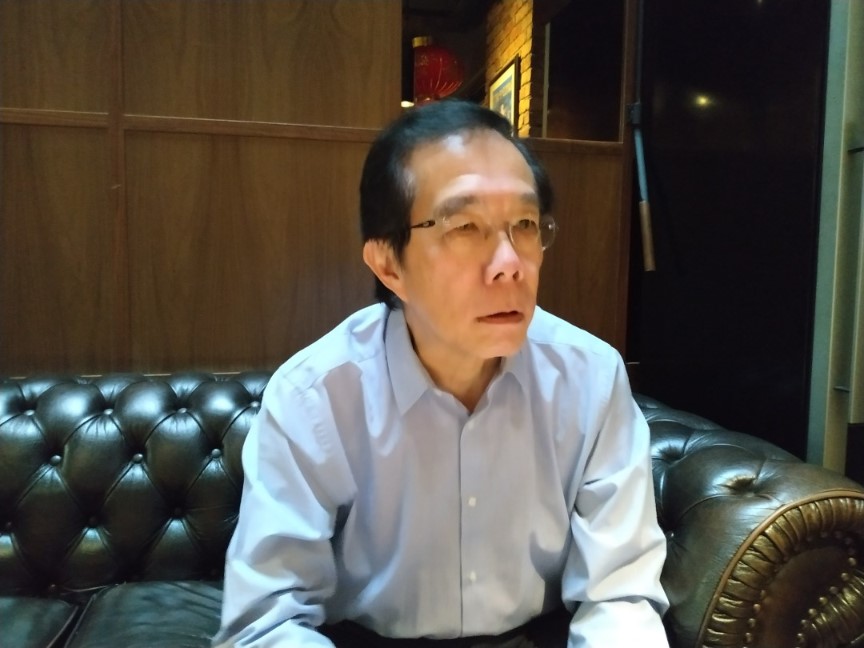KUALA LUMPUR, Dec 15 – The Malaysian Medical Association (MMA) told the Health Ministry to collaborate with private general practitioners (GPs) on prevention of chronic disease to reduce overcrowding in public hospitals.
The doctors’ group said prevention and management of certain non-communicable diseases (NCDs), like diabetes, could be done through a public-private partnership between the Ministry of Health (MOH) and the 8,000 over GPs nationwide.
“Through such a collaboration, more regular appointments can be scheduled, and health can be more effectively monitored to improve outcomes,” MMA president Dr Muruga Raj Rajathurai told CodeBlue yesterday.
“Patients will be able to choose a private clinic at a location more easily accessible for them. The congestion at public hospitals can also be greatly reduced as patients will be spread out among the clinics.
“MMA has proposed the government collaborating with private GPs on NCD management, but only received a lukewarm response to the idea. These private GP services should be included as a key component in the overall government’s health care policies as primary care plays an integral role in prevention of disease.
“If prevention is the focus, MOH should be reaching out to the private GPs as they are first line care providers.”
CodeBlue reported last Monday that critically ill patients, including ventilated cases, are stranded for up to six days in Raja Permaisuri Bainun Hospital’s (HRPB) emergency and trauma department (ED) for ward admission, due to insufficient critical care beds and staff.
Most of the severely sick patients coming to the ED at the public tertiary hospital in Ipoh, Perak, are presenting with advanced chronic conditions – such as heart disease, kidney failure, and stroke – that worsened after the disruption of care from two years of Covid lockdowns.
MMA said the pandemic alone was not the cause of complications among chronic patients, noting that complications could occur in the long run and that disease control is needed to prevent one’s condition from worsening.
“The focus must shift to prevention, that is before disease occurs. MOH will need to increase efforts to educate the population on the need for adopting a healthy lifestyle and scheduled medical check-ups, as these are the main pillars in preventing disease. People need to take responsibility for their own health,” Dr Muruga said.
“A high percentage of NCDs in the country were detected late and this shows that many are not giving enough importance to health.”
The National Health and Morbidity Survey 2019 findings indicated that 3.9 million adults lived with diabetes, 6.4 million had high blood pressure, and 8 million with high cholesterol. Around 1.7 million Malaysians had all three chronic conditions.
About half of adults in Malaysia are overweight or obese. NCDs accounted for 67 per cent of premature deaths, and 70 per cent of diseases.
MMA called for a doubling of the public health budget for 2023 to 5 per cent of Malaysia’s gross domestic product (GDP).
“A meaningful amount from the budget must go towards addressing the manpower issues and the expansion of health care facilities prioritising areas most in need of health care services,” Dr Muruga said.
“The government will need to conduct a more thorough assessment of the health care needs for each state and plan accordingly. Immediate steps need to be taken by MOH to address the issues at HRPB as reported by CodeBlue.”
Audit Emergency Departments In Busy Hospitals, Including Secondary Hospitals

Former MMA president Dr Milton Lum, who is a consultant obstetrics and gynaecologist, called for an audit of not just the emergency department at the Ipoh general hospital, but across all busy hospitals, including secondary hospitals.
Dr Lum noted that in the Klang Valley, MOH hospitals in Shah Alam, Klang, Ampang, Sungai Buloh, and Selayang are very busy hospitals.
“When you’re in the Red Zone (Critical Zone), you must have some metric, some measurement of when they are admitted. You cannot make people sit down there and wait so long,” Dr Lum told CodeBlue.
“The wards are blocked up because you don’t treat patients expeditiously. If you treat the patients expeditiously, you can sort out the problem of patients, then patients can be discharged earlier. It’s the same thing with the clinics — the clinics are all blocked up, outpatient clinics, because they take a lot of routine cases.
“I have suggested to more than one health minister to decant two or three of these NCDs — to let GPs manage some of these high blood pressure, diabetes, and high cholesterol cases, straightforward ones. Then decrease the workload in the outpatient clinics.”
Dr Lum said seeing a regular GP will likely improve patient outcomes.
MOH can also decide which drugs to allow GPs to prescribe to patients in this public-private partnership, he said, or have GPs write prescriptions for patients to collect medications from the nearest public health clinic (Klinik Kesihatan).
He also urged the government to cover the cost of follow-up appointments and treatment by GPs for diagnosed cases under the Peka B40 health screening programme. Currently, Peka B40 fully subsidises health screenings by private GPs, but refers patients diagnosed with NCDs to Klinik Kesihatan.
“You will find that there will be more compliance with treatment and control will be better.”
Dr Lum further questioned the extent of public awareness and promotional efforts for the Peka B40 programme.
“All MPs should know about it — they should be pushing at their service centres. They’re not pushing,” he said. “You can push it in the workplace and in religious centres too.”








